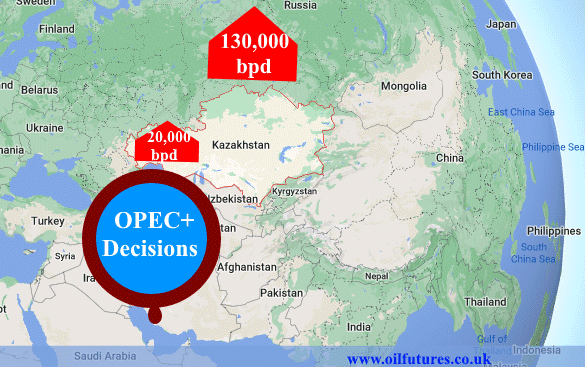OPEC+ meeting ended on Thursday with Saudi Arabia
reasserting its position as the shepherd of the block by leading the flock
facing very little resistance against achieving its desired goal.
Saudi oil ministers are renowned for going poetic
whenever they wanted to add extra weight to the points they love to make; in
this context, HRH Prince Abdulaziz bin Salman Al Saud, is no exception.
At the outset of his speech he used two similies, in
order to dramatize the position of Saudi Arabia to the global audience: “Let us
be certain that the glimmer we see ahead is not the headlight of an oncoming
express train.”
This is the position maintained by Prince Abdulaziz,
long before the crucial meeting on March 4; since most members agree with him at
the meeting, Saudi Arabia had clearly done the homework before publicly
declared its intentions; Saudi officials had persuaded the members of the OPEC
not to act on impulse by just focussing on the rising crude oil price at the
expense of hidden dangers.
The meeting began with members congratulating
themselves on the collective achievement – getting the crude oil price to a
level that was unthinkable in the middle of the last year.
The members were full of praise for the de facto
leader of the group, Saudi Arabia, for embarking on a voluntary production cut
of 1 million bpd on its own for two months, starting from February that in turn
stabilized the price.
The ministers agreed to maintain the production level
of March for April as well, offering an exception for two countries – Russia and
Kazakhstan; they were allowed to increase the production by 130,000 bpd and 20,000
bpd respectively; it was reported that the two countries were lobbying for an
increase in production, citing the hikes of domestic demands.
The block made special thanks to Nigeria for
compensating for the past excess production in line with agreed quotas at the
previous OPEC+ meetings; Nigeria and Kuwait, meanwhile, maintained that the
production level must remain at current level, although analysts expected the
polar opposite from Nigeria, especially owing to its acute economic woes.
With the news about the rollover of the current
production level for April too, Brent crude jumped almost 5% on Thursday
evening, reflecting the palpable buoyancy of the traders.
World’s top consumers, meanwhile, expressed their disappointment
at the news. India, for example, criticised the move as it could hamper the
fragile recovery of its economy.
For weeks before the OPEC+ meeting, India had been
calling for an increase in production so that oil prices would not rise steeply;
its appeals appear to have fallen on deaf ears.
With no formidable, immediate challenge from US
shale sector, the OPEC+ members will benefit from the rise in crude oil price
for the next few weeks.
In addition, there will be millions of secondary beneficiaries
too; they are the Asian workers that come to the Middle Eastern countries to
make a living, whose livelihood depends directly on the viable oil market,
which in turn offers a financial lifeline to the countries they come from – at a
very difficult time due to the pandemic.







